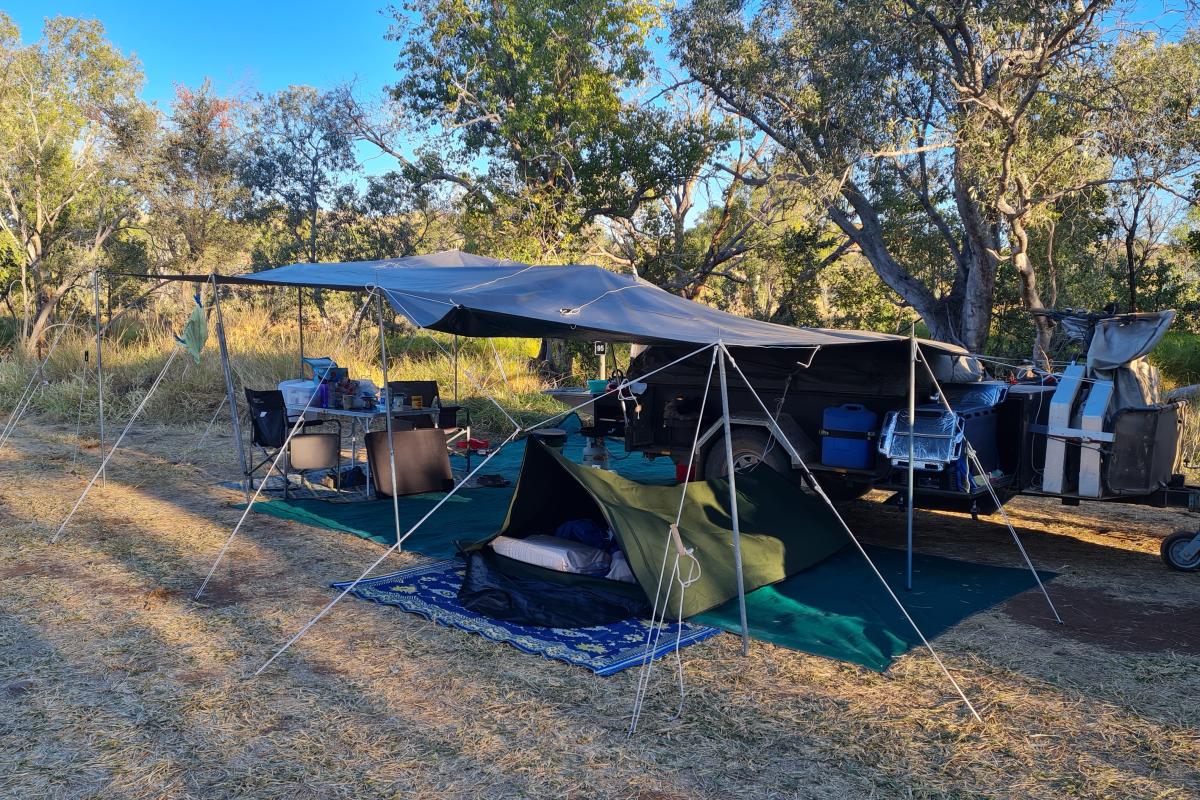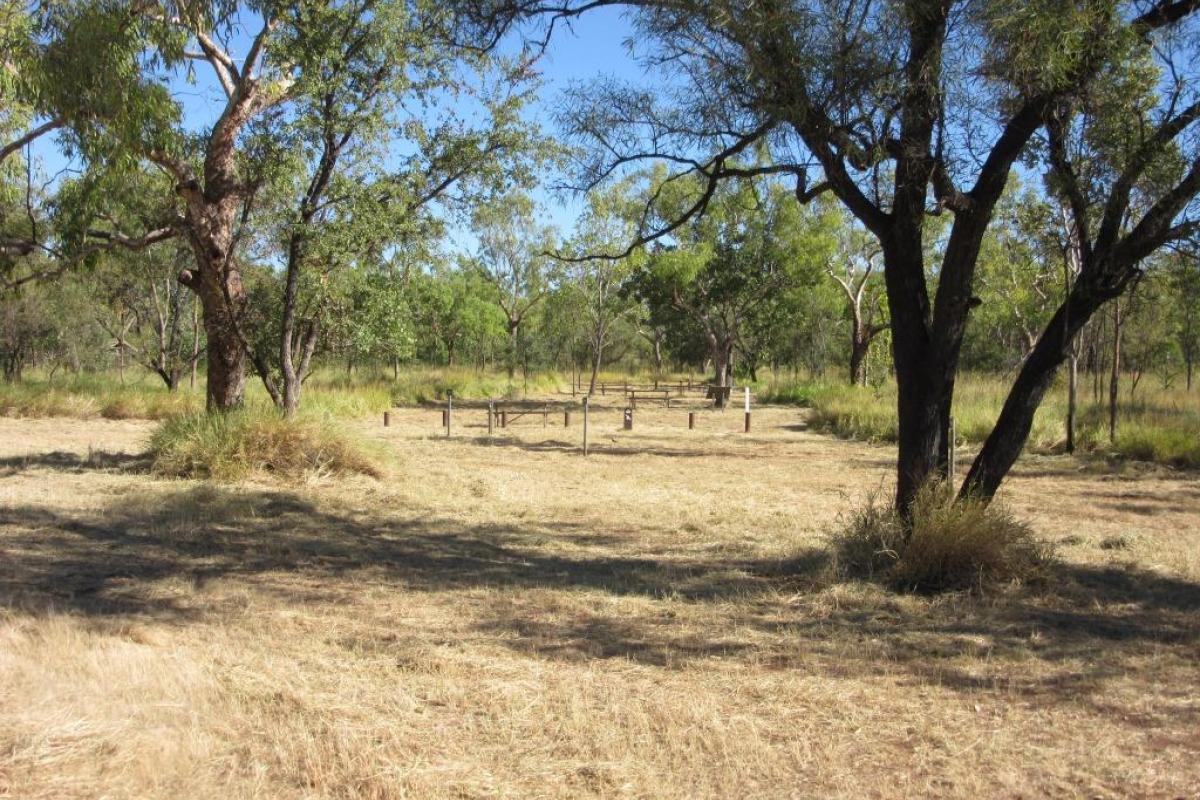About this campground
Kurrajong Campground is a large campground close to Echidna Chasm, Mini Palms Gorge in the Bungle Bungle Range.
Booking
Bookings are essential and can be made up to 180 days (approximately six months) before arrival through Park Stay WA. Campsites can only be booked for the tourist season (May to September). For other periods, bookings will be available when the seasonal opening and closing of the park is confirmed.
Specific campsites cannot be reserved. Choose an area when booking and select from campsites in that area that are vacant on arrival.
If you are an outdoor education provider, licensed commercial tour operator or are organising an event (friends, family and other social groups camping together does not constitute an event), contact Purnululu Visitor Centre to discuss your requirements.
Mobile phone and internet - there is INTERMITTENT OPTUS coverage only in Purnululu National Park and free wifi is available at the visitor centre.
Campsites
Approximately 100 campsites.
All campsites are unpowered.
Check campsite details carefully when booking.
Facilities
No-flush pit toilets
Picnic tables and benches.
Campground Rules
No campfires at any time.
Dogs are not permitted.
Generator use is permitted at some campsites between 8am-9pm only. Check campsite details carefully when booking.
Do not empty portable toilet waste into campground toilets. Carry waste out of the park for disposal in an authorised dump point.
Carry all waste out of the park. No bins provided. Leave no trace.
Drones are not permitted.
Fees
A per person camping fee and a per vehicle park entry fee apply.
Camping fee must be paid by Mastercard or VISA when booking.
Vehicle entry fee (or park entry fee) may be paid when booking online on arrival at Purnululu National Park or by purchasing a park pass. Payment is not required for trailers including camper trailers and caravans.
No booking fee.
A fee may apply if you cancel or remove dates from a booking.
Safety information
Plan when to visit. Read this safety information about bushwalking. Consider traveling with a personal location beacon (PLB). In the event you need to be rescued it could save your life!
This park is very remote with limited available supplies and untreated bore water. Visitors must carry in all water, food, fuel and other supplies. You will need supplies for three days (even if you are staying one) and enough fuel for a minimum of 300km. Purnululu National Park covers vast distances, so a day trip is not recommended.
Untreated bore water is available at campgrounds. Please treat water before consuming.
No-flush pit toilets are the only personal hygiene facility.
Drive slowly and carefully. Maximum speed limit is 50km per hour on internal roads and 10km per hour in the campgrounds.
Single axle towable units only. Dual axle towable units are not permitted.
Temperatures within the park and on the walk trails can reach 40°C (104°F) and radiant heat can increase the temperature to over 50°C (122°F).
Be prepared for an emergency. For alerts, warnings and advice go to: Emergency WA.
Purnululu National Park is a drone free area - unauthorised drone use is strictly prohibited.
There is INTERMITTENT OPTUS coverage in Purnululu National Park and free wifi available at the visitor centre.
Gallery


Campground hosts
When you arrive at this campground you might be greeted by a volunteer campground host. Be sure to say 'hi' as they have a wealth of information about the area and are known for helping to create unforgettable memories for travellers.
Find out more about becoming a Campground Host.
Activities
 Camping
Camping
Plants, wildlife and fungi
Visit the Atlas of Living Australia for a list of species recorded within a 5km radius of Kurrajong Campground - Purnululu.
Traditional Owners
We recognise and acknowledge Gija and Jaru people as the Traditional Owners of Purnululu National Park.